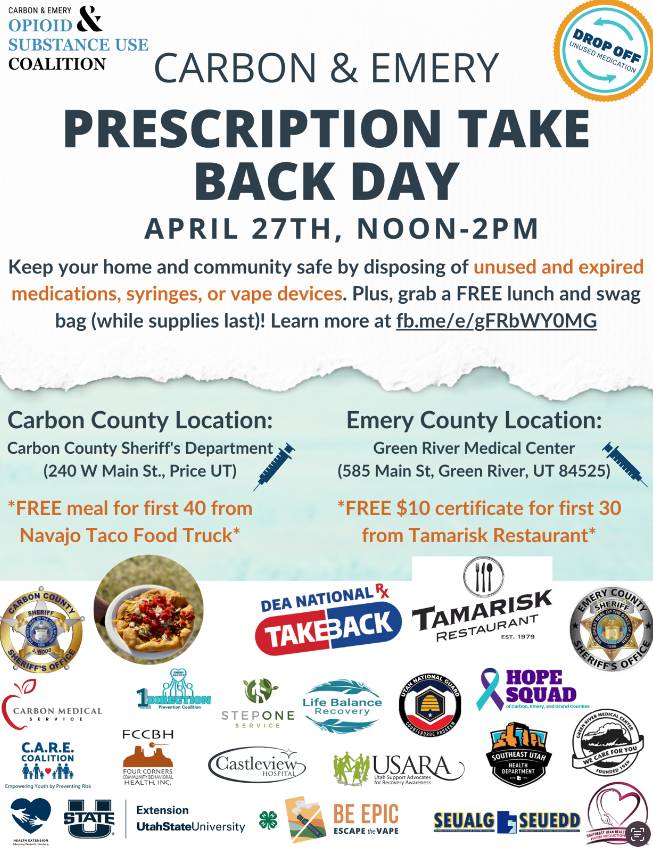By Aurelio Rodriguez, Disparities Officer, Four Corners Community Behavioral Health
The month of April is National Minority Health Month. According to the U.S. Department of Health and Human Services (HHS), Office of Minority Health (OMH), this designation brings awareness to the health disparities faced by people from underserved and underrepresented backgrounds in the United States. Each year, the HHS and OMH set a theme for each year’s National Minority Health Month. This year’s theme is Be the Source for Better Health: Improving Health Outcomes Through Our Cultures, Communities, and Connections. According to HHS and OMH, this theme helps us understand how social determinants of health of those from racial and ethnic populations impact overall health. Social determinants of health include education access and quality, health care access and quality, economic stability, neighborhood and built environment, and social and community context.
Several organizations in Utah as well as Carbon and Emery Counties are working towards addressing social determinants of health to ensure that all people have access to resources that can increase their health potential. Mental health agencies such as Latino Behavioral Health (latinobehavioral.org) and Multicultural Counseling Center (mccounseling.com) provide mental health services to Spanish-speaking clients in Carbon, Emery, and Grand Counties. Additionally, Sergio de Chazal, a mental health advocate in Utah provides Mental Health First Aid classes in English and Spanish. He has offered these classes throughout the state in person and through Zoom. He can be reached through WhatsApp at (801) 748-8144 and more information about his organization, Clases de Salud Mental can be found at clasesdesaludmental.org
Organizations that provide direct services to clients can learn how to increase their ability to provide services to clients from diverse backgrounds through the Think Cultural Health website (thinkculturalhealth.hhs.gov). This website provides information on how the National Culturally and Linguistically Appropriate Services Standards can be applied to their organizations. Locally, the USU Extension HEART Initiative recently published its Carbon & Emery Substance Use Disorder & Recovery Resource Book in Spanish. This book is available online (extension.usu.edu/heart/resource-books) and also in print form. You can request copies by emailing aurelio.rodriguez@usu.edu
All of us have a role to play to help make our communities a healthier place for everyone. One way to do this is to attend local events (e.g., extension.usu.edu/calendar) or advocate for healthy choices. One healthy choice is cleaning out your medicine cabinet this spring to reduce unused medications from getting into the wrong hands. Mark your calendars for the upcoming Carbon & Emery Opioid & Substance Use Coalition’s Prescription Take Back Day events, located in both Carbon & Emery counties on April 27th from noon to 2 p.m. At this event, you can safely dispose of unused and expired medications, syringes, or vape devices. The Carbon County location will be at the Sheriff’s Department where the first 40 people will get a FREE meal from the Navajo Taco Food Truck. The Emery County location will be at the Green River Medical Center, the first 30 people will get a FREE $10 gift certificate for the Tamarisk Restaurant. Swag bags and resource information will also be available at both locations! Learn more: fb.me/e/wH4yCNGQ8
While it might feel overwhelming to tackle the social determinants of health impacting racial, ethnic, and other historically underserved communities, taking action, even in small ways, can truly impact their lives for the better.
Additional Resources
- Suicide & Crisis Lifeline, Dial 988, for Spanish press 2, LGBT Youth, press 3
- Veterans Crisis Line, Dial 988 then press 1
- gov & Findtreatment.gov
- org: Crisis Life Chat
References:


